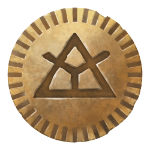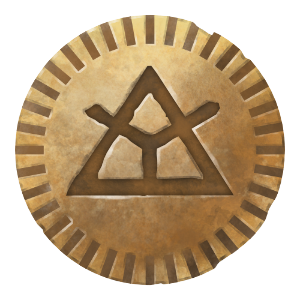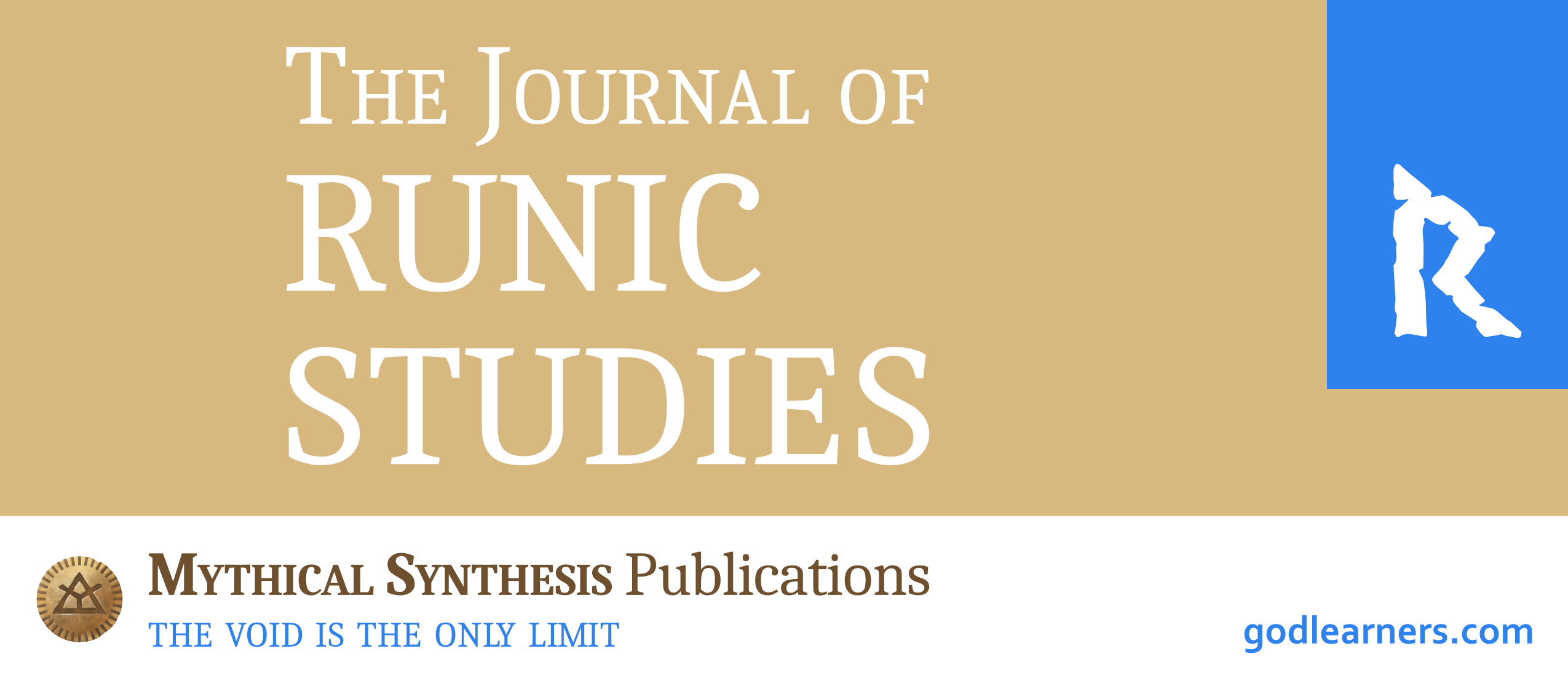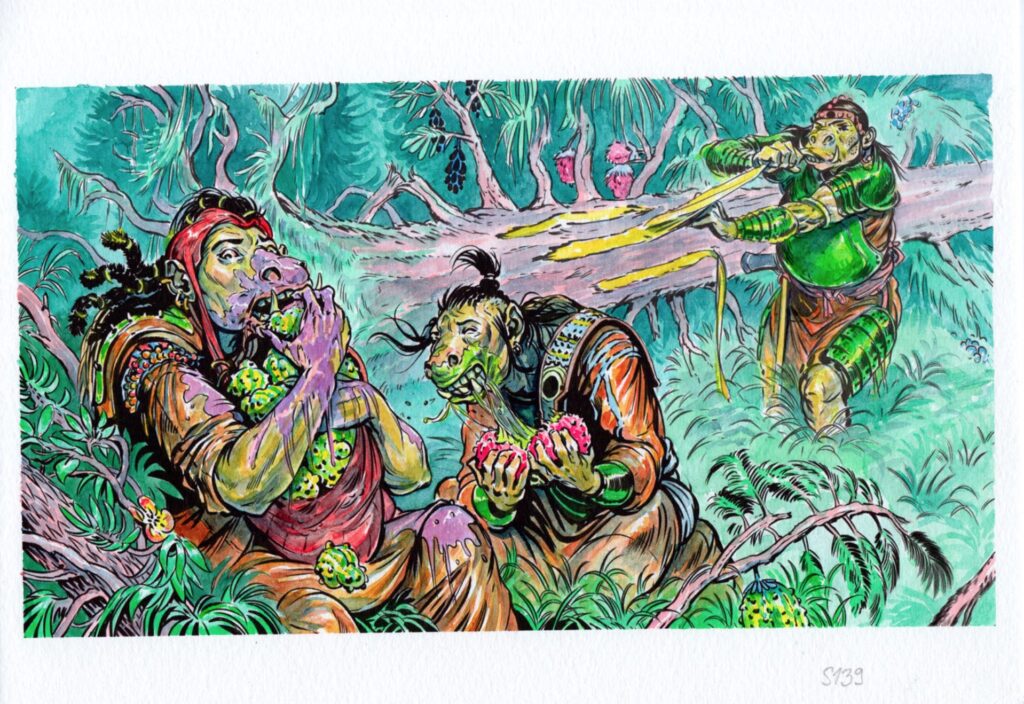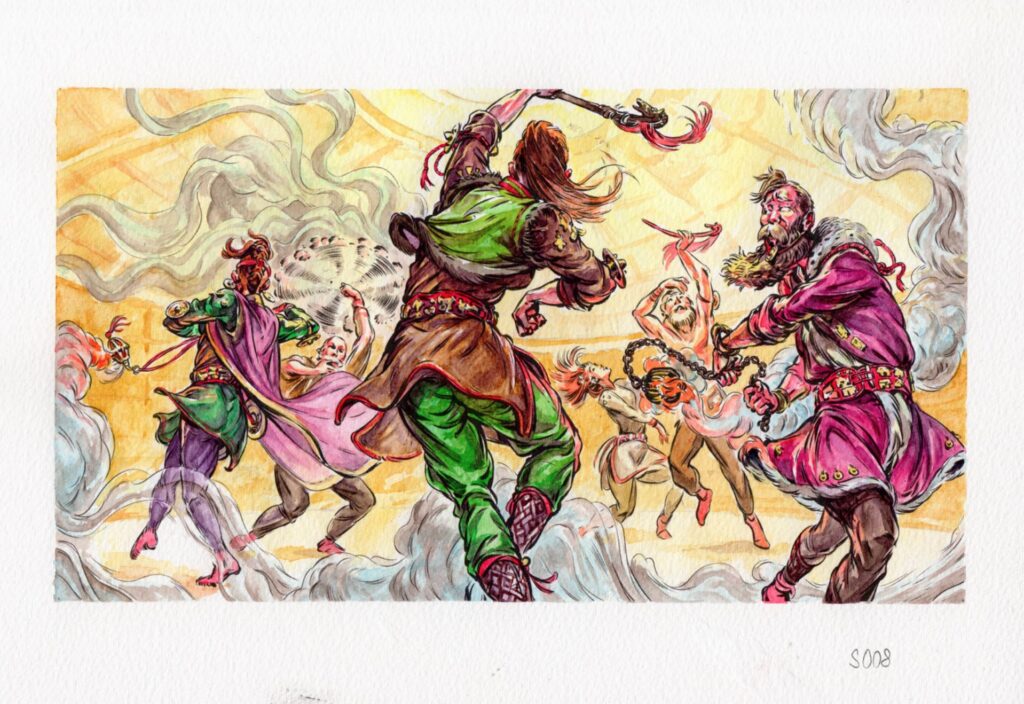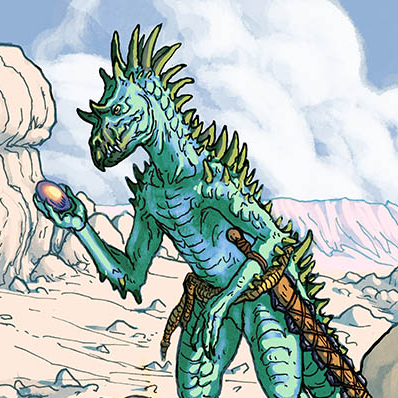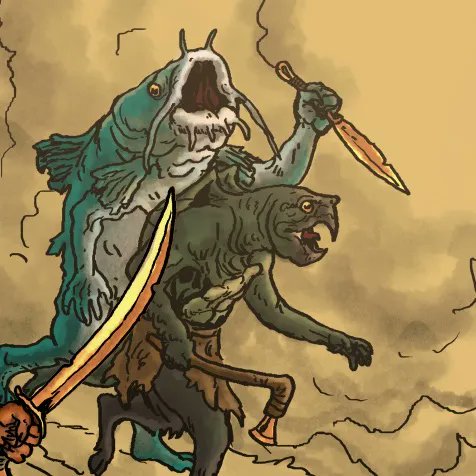Welcome to a new issue of the Journal of Runic Studies, the premier Malkioni publication for studies into the nature of Glorantha. If you haven’t subscribed yet, please consult with the spirit bound to the appropriate electronic page.
This week was both fairly quiet on the Gloranthan front, and quite busy for me, which means I probably skipped or missed some things. Oh well, it means you might procrastinate a bit less at work today! It’s good right? Mostal wants to keep you productive.
God Learner Sorcery
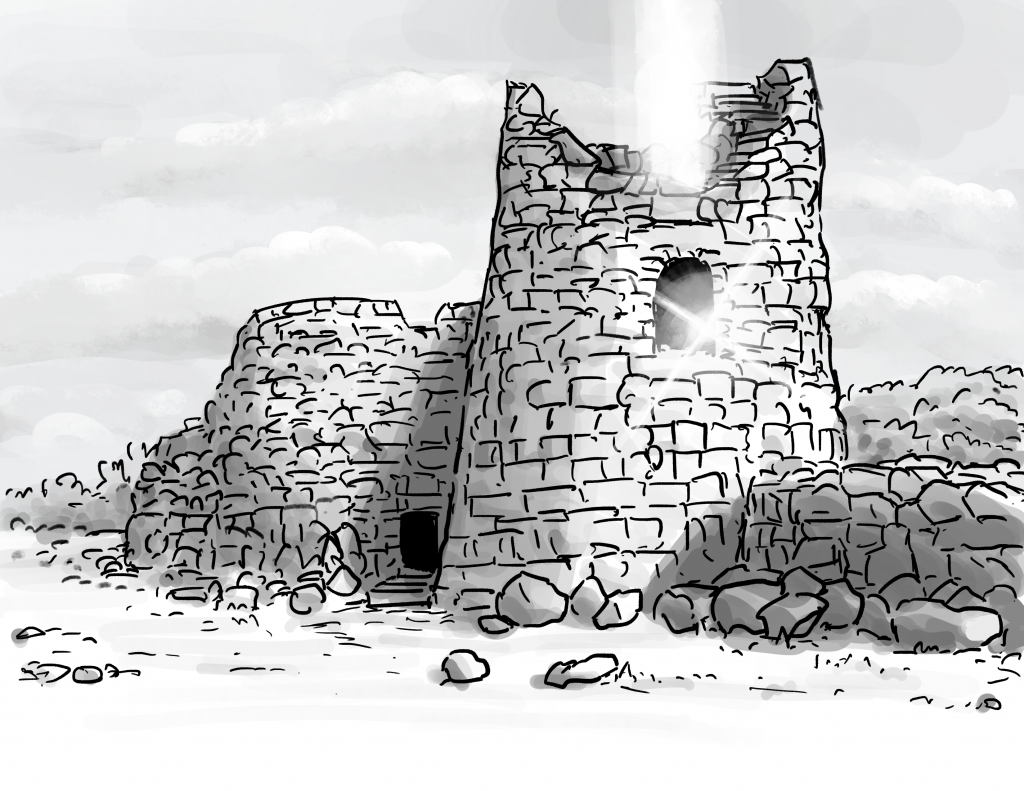
Here is what us God Learners were up to this week.
Initiation Series Episode 7: Diana, Amber, Constructive Cosmology, and Tea Bribes
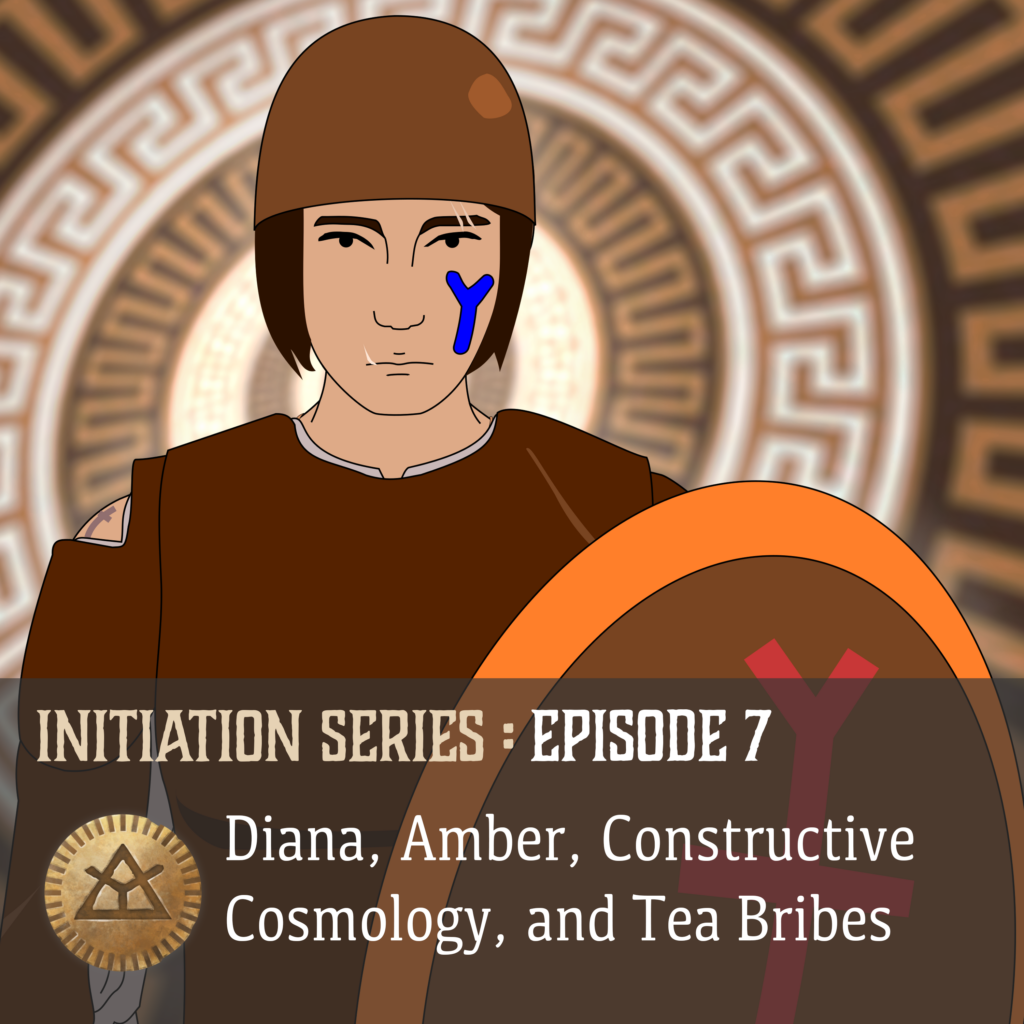
This latest episode of the initiation series welcomes power-newbie Diana Probst of Beer With Teeth, who already featured in our Gamemastering RuneQuest episode. This time she talks to us about fractal gaming in Glorantha, constructive cosmology, YGMV, tea bribes, and ice shanty, among many other digressions. Listen to it here, or wherever you get your podcasts.
Chaosium News
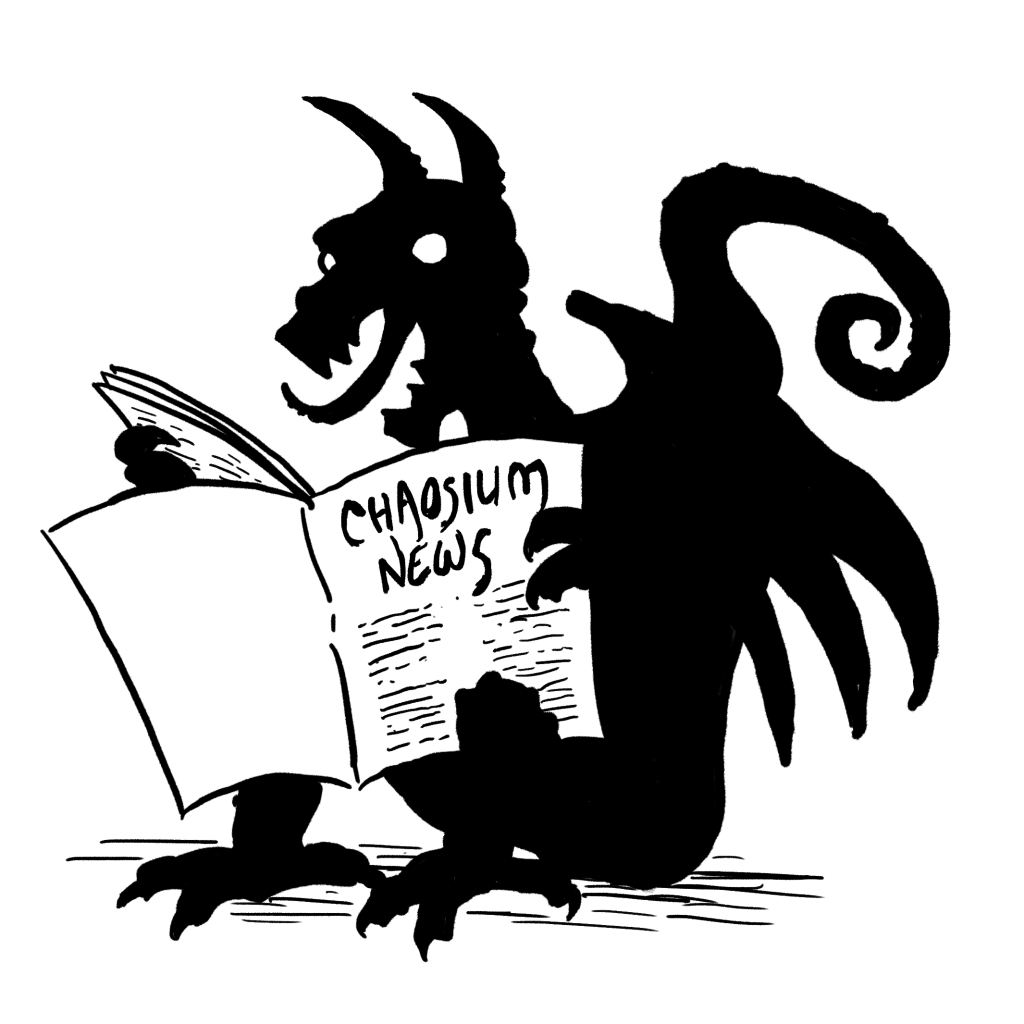
Here are this week’s Chaosium news!
Jaye Kovach on TTRPG Art
James interviews Chaosium art director Jaye Kovach about what makes good TTRPG art. She makes some good points about the immersive world-building elements of an illustration (I’ll have to take that into account in my own work), and then talks about all the stuff she’s looking for personally in an art piece.
Interestingly she gives a big shout out for Coyote & Crow, which I incidentally bought a couple weeks ago and sits on my desk as I’m writing this. Her other shout-outs include Eclipse Phase, which I’ve owned for a long time but never got to play, and what I think are DK Books (even though it sounds like she says “PK Books”). See the layout for, say, the Ancient Greece DK Book here.
Ariel Sawicki Joins Chaosium as VTT Developer
The much needed VTT support for Chaosium titles seems to be slowly addressed, as the team’s new hire will focus on exactly that:
His current projects are getting the RuneQuest and Call of Cthulhu tabletop RPGs on to the Foundry platform.
Jonstown Compendium
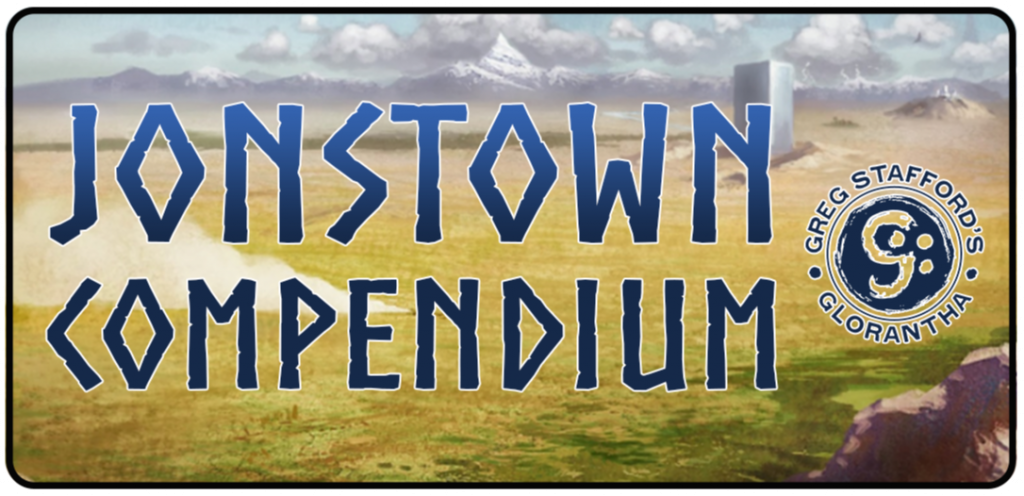
The Jonstown Compendium is Chaosium’s community content program for all Gloranthan games, hosted on DriveThruRPG. Disclaimer: all the relevant links are affiliate links that hopefully will let us cover some of the hosting and maintenance costs for the website and podcast! Thanks for using them!
The Six Paths is Available in POD
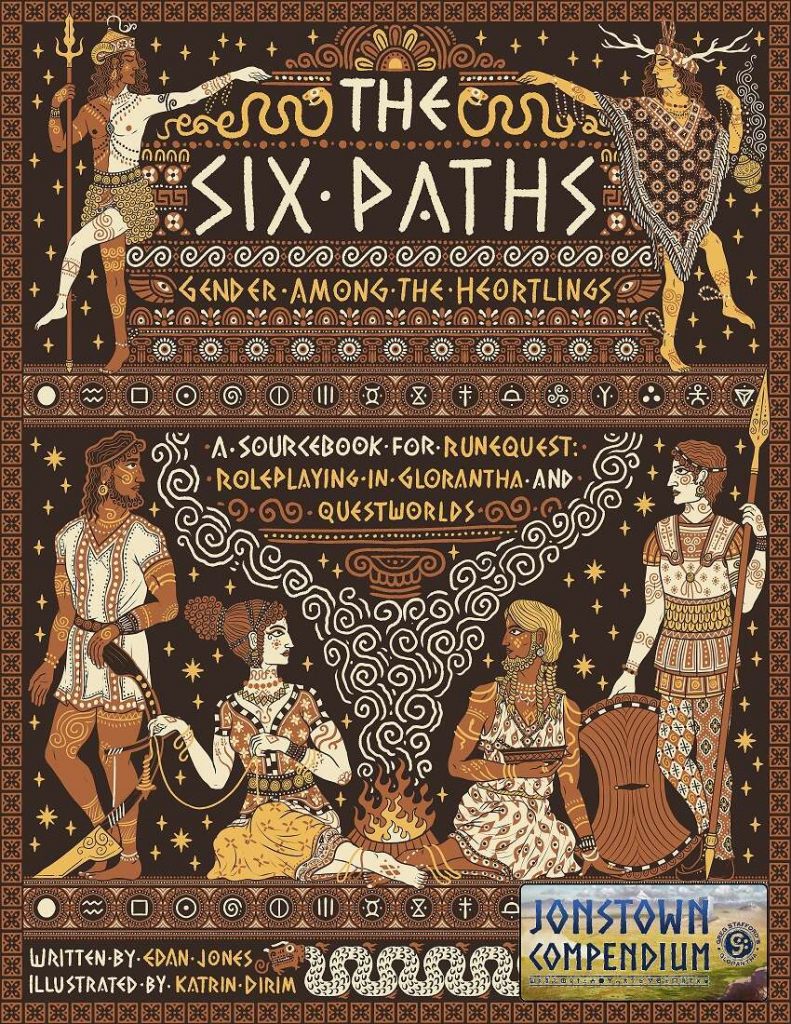
The Six Paths, the short book by Edan Jones and Katrin Dirim about gender roles in the Heortling society, has been fast-tracked by Chaosium for availability via print-on-demand! You can grab the softcover here.
Most of the money from the sales will go to transgender-related charities (more detailed here). If you’re looking to release a Jonstown Compendium item and similarly have Chaosium’s share go to a charity, there is a very welcome Fan Use and Licensing Q&A entry for that.
Jeff’s Notes

Jeff Richard, the current mastermind on everything Gloranthan at Chaosium, is often posting notes and thoughts on the RuneQuest Facebook group. Here’s our curated list from the past week. A partial archive of these sources is compiled on the Well of Daliath.
What Constitutes Rune Magic
That BRP Central thread on the “worst cults” mentioned last week still had people arguing in circles about Yelmalio for a few days until the thread was inevitably locked. I’m still going to pick a few things I found interesting in there.
For instance, here is Jeff’s take on the gameplay utility of Yelmalio. Before you read that, note that this utility is predicated on following the rules about spirit magic accessibility: as per RAW you mainly get access to your cult and any associated cult’s magic. Other spirit magic might require finding a willing shaman teacher or performing services to non-associated cults, all of which might take an adventure or two to achieve. Although it’s sort of obvious in retrospect, I realized through that forum thread that giving “free” access to spirit magic (which some gamemasters do) destroys the utility of some cults since it removes their specialization.
[Yelmalio] is a fine adventurers cult – as are any of the cults in RQG. But Yelmalio was never a good power-gamer adventurers cult (arguably none really are). In RQ2, he was best for fighting trolls and very useful in the Big Rubble (all those light spells such as Light, Lightwall, and Lantern are incredibly useful in underground ruins!). Sunbright and Catseye are incredible spells – Sunbright gets rid of trollkin and cave trolls, Catseye puts you on an even platform with trolls in darkness. Throw in Detect Gold and you have a cult tailor made for adventuring in the Big Rubble.
But Yelmalio’s myths aren’t about exploring the Big Rubble – they are about surviving as the Last Light in Darkness. And his cult survives by fighting together as a trained pike and shield force (which doesn’t require a lot of specialised magic).
That last bit caught my eye, especially in relation to some other discussions I’ve seen in the past about what becomes Rune Magic and what doesn’t. It’s not always clear whether a Rune spell allows you to wield the powers of your deity, or allows you to reproduce something your deity accomplished (RQG p313 says “The caster imitates the deeds of the deity and thereby magically partakes of the deity’s power.“)
For instance, Yelmalio is indeed a god of light, and he has some light magic. But he also accomplished the feat of surviving the Hill of Gold and holding on until the Dawn, becoming a mythic archetype of grit and perseverance. Should this also be a Rune spell?
Advice Greg gave me in editing Cults material – if there is something a player wants to get out of a cult that seems beyond the social/magical ecological role of the cult, let them heroquest for it and gain it as a personal boon, IF they are able to experience and survive this on the Hero Plane. Don’t make it a default spell or even a special subcult. And if it is really cool, don’t let it be a common heroquest!
[…]
Yelmalio sticked it out by not letting his light be extinguished – not because of some inherent stick-it-out-ness. Same thing with Orlanth in the Lightbringers Quest – he made his way through the Underworld despite having no magic to facilitate this and reconciled with Yelm despite having no reconcile with guy you killed magic in order to save the cosmos despite having no save the cosmos magic.
The gods’ Rune magic reflects their inherent nature and attributes. So Orlanth is a Thunder God, Adventurer and King, so has magic that reflects that. Yelmalio is the God of Light, and has magic that reflects that. Yelmalio is an important cult because despite being the God of Light, he did not go out despite the Greater Darkness. Maybe his Sunbright spell had a lot of Extension?
So it seems that Rune Magic is really about the former of those two previous propositions: it lets you access power that a god has (inherently or through union or theft). Whether you can accomplish the same things that god did is up to you, and that’s definitely the case when that god accomplished stuff they didn’t even have special powers for.
Joy and Ascended Masters
Here is a bit of Western spiritualism for you on this fine morning.
As I understand it, most of the Malkioni philosophies have a concept of transcendence in which one can achieve some sort of unity with or understanding of the cosmos (generally through or as the Invisible God.) Joerg tells me that the Brithini have the “Revelation of Now”, the Rokari have “Solace”, and the Hrestoli have “Joy”. When one achieves one of these things, they become an “ascended master”, which different philosophies treat differently. The Brithini don’t care about them, the Rokari view prayer to them as “barbaric superstition”, and the Hrestoli venerate them.
Jeff explains:
Joy is a moment of where one experiences the Invisible God and is transformed by it. Like henosis in Neo-Platonism – union with the fundamental source of reality. The Hrestoli tradition teaches us that we must go beyond restrictions of caste and taboo to achieve Joy, but we must also have experience caste and taboo first – this is like the theurgy involved in Neo-Platonic henosis. Malkion appeared to Hrestol in his darkest moment and showed him the path to Joy.
Through Joy we have a direct line experience of the One – to the Good above the gods and Runes.
In the Hrestoli philosophy, everybody can try and become one of the “Men-of-All” by “systematically overcoming the unnecessary limitations of caste” (I’ll remind you that most Western societies have a caste system where the population is divided between, basically, peasants, soldiers, nobles, and wizards). I’m not quite sure if Joy is equivalent to becoming a Man-of-All, or if being a Man-of-All is part of the journey to achieve Joy…
During the Ban it was easy. Through training and experience, we are able to mimic in reverse the mistakes of the demiurge and achieve Joy. Indeed even peasants could do it. But now, even some of our most noble leaders are without Joy, a sign of our degenerate times no doubt.
I don’t know what the Ban has to do with it here… the Syndics Ban is a curse that fell upon Northwestern Genertela in 1499 when the God of the Silver Feet, the local trade and communication deity, was killed (I’m still not sure how you effectively kill a god in Glorantha but let’s go with it). Suddenly, the land was split in dozens of regions between which communication and travel was impossible: you would just end up in some magical fog and either get lost forever or find yourself back where you started. In late 1500s and early 1600s, the Ban started to lift, one region at a time, and people who lived their whole life in isolation discovered the existence of an increasingly wide world around them. Basically, Fronela around the turn of the 15th century is where you set your Forbidden Lands campaign.
So I guess that Joy was easier to attain under the Ban because things were simpler, the population was smaller, and the limitations of caste you needed to overcome were a shorter list? I don’t know, what you do people think?
Our greatest heroes are those that could ascend and be in perpetual union with the Invisible God, but remain tied to us as guides and guardians. Bodhisattvas, gurus, helpers, and friends of the Invisible God. They are held in reverence even after their death.
Note the continuation of Glorantha’s shift towards an Indian flavour, here… older material (including the Guide to Glorantha) had mentions of “Knights” and “Saints” as possible alternate terminology for “Men-of-All” and “Ascended Masters”. This sent a whole bunch of fan material down a medieval rabbit hole. I strongly suspect we won’t see these terms in use anymore.
Jeff also clarified the difference between Malkion’s and Zzabur’s takes on Solace:
Malkion proclaimed Solace -that after death the essential you persists (the soul) and will be reincarnated into the mundane world. We gain Solace in this – that there is an immortal Self.
Zzabur says that the spirit, the soul, whatever – that is not I AM. These are names we give to the animating energies that help constitute the I AM, but upon death I AM is no more – it is reduced to its constituent parts and is no longer I AM. And whatever it is, is of no further interest.
I’m pretty sure Zzabur is one of those people who insists that teleportation is a death-and-cloning machine, and that he would never use it… but anyway, Zzabur indeed just wants to keep doing what he does. If I remember correctly, he doesn’t want to become a deity or join the Invisible God because he, effectively, doesn’t want his ego to die. We’re talking about the guy who wants this so much that he fucks up half the world in order to teleport his resort island to a place beyond death.
Community Roundup
The community roundup is our highlight of interesting things being mentioned in the Glorantha-related Facebook groups, sub-Reddits, and other similar online places.
Vintage RPG Podcast on Borderlands
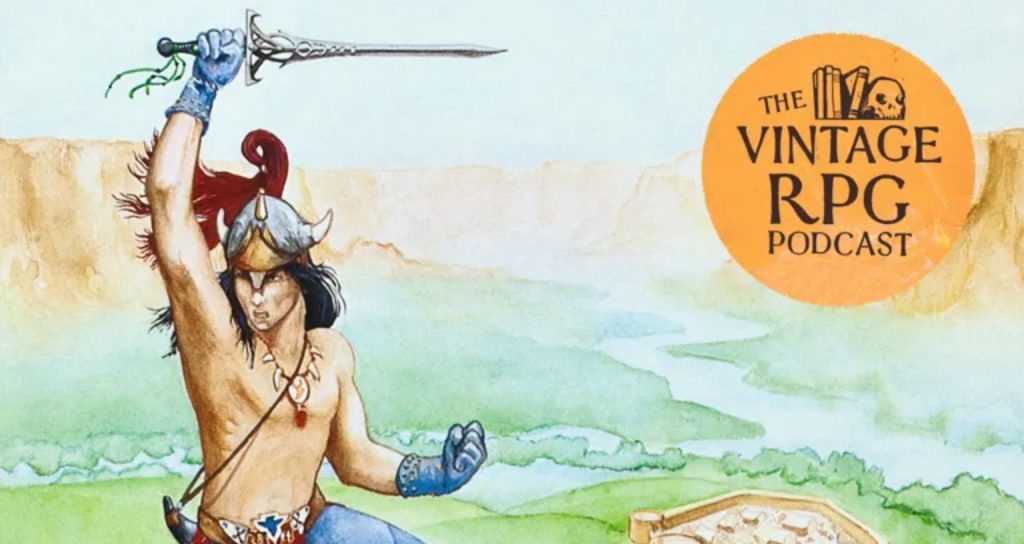
The Vintage RPG podcast has once again a nice and short episode on some RuneQuest property. This time they talk about Borderlands, and Stu seems to really, really like this campaign. If you want to check it out, you can get the print-on-demand and/or PDF version from Chaosium.
Jan Pospisil’s Art for Sale
Some of you might be interested in knowing that Jan Pospisil still has many Gloranthan illustrations available for sale. Most of these are watercolour originals made for the Six Ages computer game.
Check them out here! Plus a bit more here.
Six Ages: Lights Going Out
Speaking of Six Ages, the development of the sequel is still going. Here’s a Dragonewt. Also, guess what you get when a Broo goes swimming?
Thank you for reading
That’s it for this week! Please contact us with any feedback, question, or news item we’ve missed!
